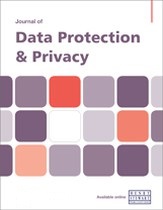High-fidelity synthetic patient data applications and privacy considerations
Abstract
This paper explores the potential applications of high-fidelity synthetic patient data in the context of healthcare research, including challenges and benefits. The paper starts by defining synthetic data, types of synthetic data and approaches to generating synthetic data. It then discusses the potential applications of synthetic data in addition to as a privacy enhancing technology and current debates around whether synthetic data should be considered personal data and,therefore, should be subjected to privacy controls to minimise reidentification risks. This will be followed by a discussion of privacy preservation approaches and privacy metrics that can be applied in the context of synthetic data. The paper includes a case study based on synthetic electronic healthcare record data from the Clinical Practice Research Datalink on how privacy concerns due to reidentification have been addressed in order to make this data available for research purposes. The authors conclude that synthetic data, particularly high-fidelity synthetic patient data, has the potential to add value over and above real data for public health and that it is possible to address privacy concerns to make synthetic data available via a combination of privacy measures applied during the synthetic data generation process and post-generation reidentification risk assessments as part of data protection impact assessments.
The full article is available to subscribers to the journal.
Author's Biography
Puja Myles is Director of the Medicines and Healthcare Products Regulatory Agency's (MHRA) specialist real world data research services centre, Clinical Practice Research Datalink (CPRD). She initially joined the MHRA as Head of Observational Research, CPRD in 2017 and, prior to this, trained as a public health specialist and was a public health academic at the University of Nottingham, UK. She is a fellow of the Faculty of Public Health (UK), a senior fellow of the Higher Education Academy (UK) and has a doctorate in epidemiology. She has been the MHRA's strategic lead on the development of synthetic data generation approaches and applications since 2017.
Colin Mitchell is Head of Humanities at the PHG Foundation, a health policy unit and part of the University of Cambridge. The PHG Foundation's multidisciplinary team works with health professionals, researchers and policymakers to explore the implications of emerging data and related technologies for health care and research. Colin leads the Foundation's work on legal and ethical issues arising from novel health technologies, biomedical research and data-driven innovation. Colin has a PhD in health law from the University of Amsterdam, a master's of studies in legal research from the University of Oxford and a BA in law from the University of Cambridge.
Elizabeth Redrup Hill is a senior policy analyst (law and regulation) in the Humanities Team at the PHG Foundation, a health policy unit and part of the University of Cambridge. The PHG Foundation's multidisciplinary team works with health professionals, researchers and policymakers to explore the implications of emerging data and related technologies for healthcare and research. Elizabeth holds a doctorate (PhD) in medical law and ethics, and an LLB in law from the University of Southampton, UK. She is also an external lecturer in medical law and ethics at Imperial College London. Her research interests are in the regulatory and ethical challenges for genomic and health data, artificial intelligence and other innovative health technologies.
Luca Foschini Dr Foschini's research in the past decade has focused on the emerging field of digital medicine, particularly in the areas of data collection and analysis methodology, with topics including machine learning in health care, continuous health monitoring and privacy in high-dimensional data. Dr Foschini holds a PhD in computer science from the University of California, Santa Barbara and a master's degree in computer engineering from the Sant'Anna School of Pisa. He has also conducted theoretical computer science and cybersecurity research in academia and industry, including research positions at CERN and Google.
Zhenchen Wang is an innovator in the intersection of artificial intelligence (AI) and machine learning (ML) within healthcare data applications. With a solid foundation in computer science and a deep understanding of electronic healthcare systems, Zhenchen has dedicated his career to revolutionising the way healthcare data is analysed and utilised to improve patient safety and operational efficiency. He joined MHRA in 2017 and has been the technical lead on research and development of synthetic data generation. Zhenchen leads a team of talented data scientists and engineers in developing cutting-edge AI and ML algorithms tailored specifically for healthcare applications. His expertise lies in leveraging advanced analytics techniques to extract valuable insights from complex medical datasets.
